 The passage of time can help! The importance of appearance I won’t lie to you. Appearance matters in most, if not all, societies around the world. It can get you places in your personal and professional life. Let’s face it, those who are blessed with the ‘beauty genes’ have advantages over those who drew the unlucky ‘ugly genes’. They may be more likely to find a desired partner or job and, yes, it’s not fair! But rather than wallow in misery about why we don’t look like Bradley Cooper or Jennifer Lawrence (I watched American Hustle recently, hence this reference), we need to think more broadly about who you are as a person. That is, we have a lot more to offer this world than our looks. My experiences with appearance obsession As a teenager I was worried about my appearance. A lot. It was mainly due to an unhealthy view of how important appearance was. I think this view was spurred on by witnessing people around me and speaking so openly about looks and placing so much importance on them. Let’s face it, teenagers can be quite shallow and superficial at times! You couldn’t go more than a day in the high school corridor without overhearing whispers about Lucy, the overweight girl; Jack, the guy with bad acne; or Dan, the guy with big muscles. This, coupled with the fact my body was changing in all sorts of ways, made me pretty insecure. It’s no wonder that there has been a rise in obsessions with appearance, cosmetic surgery and the clinical diagnoses associated with preoccupation with actual, or perceived, physical defects (i.e. body dysmorphic disorder)! Things did change as I got older, changed my environment, developed as a (whole) person, and put the importance of appearance in perspective. Overcoming appearance obsession As I aged appearance seemed to matter less and less. It’s not because our eyesight gets worse as we age – which it may well do! – but the importance we place on it changes dramatically. At the age of 29, I am still conscious of my appearance, and I do care about it (perhaps, more than others – who knows, guys are too cool to talk about this) but I am reasonably happy in my own skin. That’s not to say I don’t make an effort or want to look good, but I don’t worry half as much about my appearance now. Why is that? There are a number of reasons why appearance matters less as we age. For me, it was a combination of surrounding myself with people who were not so superficial, comparing myself with others less, and focusing on my development as a person, not as a physical body. Whilst these may not apply to everyone, I believe there is a general truth – in the case of most people – that appearance matters less to us as we age. Other reasons for this may be to do with settling down with a partner and therefore not being in a state of anxiety over finding a mate or, quite simply, having bigger fish to fry: paying bills, finding job security, cooking, cleaning, washing, etc. etc. The changes that happen as we age push our worries about our appearance into the background. The good news is that worrying about appearance is often transient and you, as always, have the choice of what to focus on in your life. Behavioural tips to stop worrying about your appearance · Stop looking in the mirror so much – you look fine! · Don’t ask others how you look – reassurance is a cycle that never dies. · Don’t compare yourself to others you see in magazines, tv shows, movies or even walking down the street – remember looks are subjective anyway, and what you perceive to be attractive may not be the same as what another person thinks. Final thoughts Without sounds cliché, you are unique; no one looks quite like you. More importantly, no one is quite like you, and this – your personality – matters most! Focus on your developing your personal qualities as a person and not as a body and you will be much happier. Whilst this is a hard journey to go through, particularly as an adolescent, you will get there in time.  Dr Sam Jee currently works as a research associate at The University of Manchester and has a background in cognitive psychology and educational research. He has a particular interest in the causes and treatment of anxiety disorders and has worked as an Assistant Psychologist in the private sector and as a support worker for Anxiety UK, a national charity. Sam is also a co-founder, and major contributor, to a popular anxiety blog (www.beatingyouranxiety.com). Connect with Sam on Twitter: @anxietybeating
0 Comments
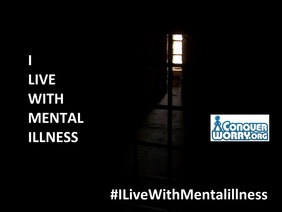 If you had told me three years ago I would be working on a wellbeing project helping others with their struggles around Mental Health I would not have believed you. This time three years ago, my life had gone from being a loving wife, mother of three, professional nurse within critical care, having fulfilled most of my life’s dreams to someone who was determined to destroy themselves in any way possible. This obviously did not happen overnight, and looking back, I have always had a tendency to act impulsively and irrationally at times, but always thought this was normal and I was just an emotional, passionate person. I knew at times in my life I was struggling with depression but always related it to my menstrual cycle saying, “oh it’s cos I’m due on”. I was also aware that my mum had suffered with a hormone imbalance, which caused behaviour changes and she had spent many years on hormone replacement therapy. As a teenager I was a typical tearaway, and really struggled with my identity. Often I would feel like I just changed according to the people around me and didn’t know who the real Lydia was. I moved to Liverpool in 1999 to work at Alderhey hospital as a staff nurse. I met my husband and we married in 2002 and went on to have three children. After my first child, I suffered with post-natal depression and was started on antidepressants by my doctor. I stopped these once pregnant with my daughter but as soon as I had finished breastfeeding her, I relapsed. In September 2007 I found I was pregnant with my third child Ethan and once again stopped my medication. I still felt that somehow my mood and behaviour changes were linked to my hormones as when I was pregnant or breast feeding I would feel so much better. Once Ethan was born, yet again my thoughts and behaviour were becoming erratic with outbursts of anger and plenty of tears. During the years I had struggled I always managed to maintain an external appearance of a women who balanced, family, work, church and life in general really well. I can remember people often saying to me, “How do you do it all??” Even at work where I held a responsible job as a sister in critical care, no-one had any idea of my internal suffering and the constant struggles I had inside my head. One of the obsessive thoughts I would often have to fight was the fear of something happening to my children. This soon became too close to reality when my youngest son Ethan had a large seizure at home and was diagnosed with epilepsy. I started to lose separation as to what was real and what was not and began to lose grip on reality. I couldn’t understand what the point of me living was when I couldn’t protect my children. I felt like a failure as a mother and as a nurse as the realisation set in that I couldn’t save everyone. The world felt like an awful place to be and heaven seemed an easy option. After a serious attempt to take my own life I spent most of the following year in and out of a psychiatric unit and made numerous attempts to end my life. I was eventually diagnosed with bipolar type two disorder and stabilised on medication. In some ways being ill has given me a new sense of freedom. After all when you have walked through Liverpool in nothing other than a theatre gown with a drip and lots more showing than you would like, being foolish in public now feels quite acceptable. However, on a serious note, the lows were extremely painful and included numerous attempts to end my life and generally destroy myself in any way possible. Since being diagnosed I have completed a course of cognitive analytical therapy which has helped me to understand why I think the way I do and helped me to recognise and change certain thought patterns I struggle with. I have taken time to understand my illness in order to recognise triggers and signs of me becoming unwell again and have put preventers in place. I do still have to take medication and may have to continue this long term, but my life is worth living and those feelings of despair have gone. I want to take this opportunity to thank my husband; Stuart, Children; Cameron, Rosie, and Ethan, family, and friends for supporting me and loving me through this very difficult time. But ultimately I want to thank God, as he never gave up on me and when I had no fight left in me to live, He carried me through to the next day. God is my hope and foundation for the future. Key Symptoms I was suffering: Obsessive intrusive thoughts, Catastrophic thinking, paranoia, outbursts of anger, extreme behaviour changes, suicidal tendencies, switching between being very happy and busy to very sad and melancholy. Symptoms for PMS/PMDD: mood swings, depression, tiredness, fatigue or lethargy, anxiety, feeling out of control, irritability, aggression, anger, sleep disorder, breast tenderness, bloating, weight gain, clumsiness and headaches. Dramatic change in behaviour from ovulation to the onset of a period (7-10 days prior to a period)and complete relief from those symptoms once you have menstruated. For further help and advice, please go to www.Pms.org.uk Places I found help: St Andrews Church Clubmoor, Celebrate Recovery Programme, Community Mental Health Team, Merseycare NHS Trust, GP, Family and Friends. 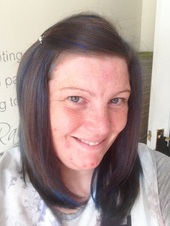 If this story has affected you or you would like any further information on services provided by the wellbeing project, St Andrew’s Community Network, please email; Wellbeing@standrewslive.org.uk. “I want to give Hope to others suffering from mental health Problems” My name is Lydia and I currently volunteer for the Wellbeing project in St Andrews Community Network. The project looks to help people within our local community who are struggling with physical, social and mental wellbeing. The services we currently provide are:
Connect with Lydia: Twitter: @likeablelyd 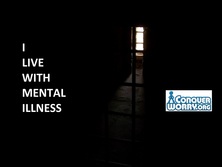 Hi, so, my name is Demi, and I live with Depression and Anxiety. It all started many years ago, but got worse when my grandmother passed away 2011. Six Months later, someone tried murdering my brother, it was a week before Christmas, too. I detereorated, then 6 months after that, June 2014, before my grandmothers death anniversary, I was on holiday in Isle Of Man on my own, visiting some 'friends', I was 15, the police and social services had to police escort me home. I was a victim of grooming. I had a lot of therapy and classes after that. I didn't get diagnosed with anything then. It wasn't until I revealed a matter of something that happened when I was little to the college, which became a safeguarding issue, Jan 2014, that things got bad again, I got over that, but then17th March, 2 weeks after my 17th, I nearly lost my mum. May, I got an official diagnostics of depression and anxiety. My life since has spiralled out of control and 9 months on, I'm still battling these illnesses and and fighting for help and people to listen to us, but I'm still here, I'm campaigning for mental health in March, and will be doing a skydiving event for Mind. I'm slowly going to raise money, make a difference to this world, and do everything in my will to save those around me battling a mental health problem, including myself. I love each and every one of my friends, especially those with mental health issues, like PTSD, depression, anxiety, BPD, Bipolar, and so much more. All the best, Demi   First Published in ExpertClick.com under title: “Three Ways to Keep Your Hope Alive (And Your Work Productivity High) “If we were logical, the future would be bleak indeed. But we are more than logical. We are human beings, and we have faith, and we have hope and we can work.” ~~Jacques Cousteau Have you ever experienced a period in your life where your concentration and productivity dipped well below the usual flow? Where most of your mental energy went into worrying about what is going to go wrong instead of right? Then you get some good news and all of a sudden your vitality is restored and so too is your work output. Research has shown that hope is a powerful motivator. In fact one study (as noted by Patricia A. Dunavold in her analysis, “Happiness, Hope, and Optimism” for California State University, Northridge) has shown that hope was a better predictor of first trimester grades than student’s SAT scores. The question is: How does one continue to keep his or her hope up? Given both the external realities of our world, plus the very real struggles we all have to face in our personal lives, it can be quite easy for hope to dry up. Factor in the emotional and physiological components of depression and anxiety that many of us also experience, and hope starts to look as lifeless as the dead grass in an ongoing drought. The good news, though, is that you can create your own nourishment to renew both hope and inspiration. Below are three easy—and positive—steps to keep your hope alive: 1. Practice Humor According to an article in Science Daily, research at Texas A&M University shows that humor can positively influence a person’s state of hopefulness. As part of the study, participants who viewed a 15-minute comedy video experienced statistically significant increases in their hopefulness scores after watching it as compared to those who did not. Psychologist David H. Rosen concludes that humor is a positive emotion that helps people pursue more creative paths of thought and action, and therefore helps people feel as if they can more easily overcome obstacles—which, of course, is a large component of hope. 2. Create a Game Plan Another aspect of hope, according to Rosen, is tied to a person’s ability in developing a “plan of attack.” So when you are facing a specific problem, you can increase your hope levels by creating a game plan. By writing down all the steps you can take, as well as preparing a “plan B” (and perhaps even a “plan C” as well!), you are consciously taking control of your life, and at the same time helping to increase your hope. 3. Call Upon Your Cognitive Skills Dunavold states that many studies have demonstrated that the right cognitive strategies can help restore and maintain hope. Practicing such cognitive behaviors as positive self-talk, envisioning hopeful outcomes, reading uplifting books, and listening to upbeat music are all practices that help people to keep their hope up through adverse life events. In conclusion, hope is a large component to not only our happiness, but also our motivation. Focus on nourishing it—and it will nourish you back! “You are not alone…please know that hope can fly in on the most unexpected of wings.” ~~quote from novel “The Grace of Crows” Tracy Shawn  Tracy Shawn, M.A. lives and writes on the Central Coast of California. Her award-winning novel, The Grace of Crows, is about how an anxiety-ridden woman finds happiness through the most unexpected of ways—and characters. Dubbed a “stunning debut novel” by top 50 Hall of Fame reviewer, Grady Harp, The Grace of Crows has won the Jack Eadon Award for the Best Book in Contemporary Drama, Second Place for General Fiction for the Readers Choice Awards, and Runner-Up for 2014 General Fiction with the Great Northwest Book Festival. Connect with Tracy Twitter: @TracyShawn Facebook: www.facebook.com/tracyshawnauthor 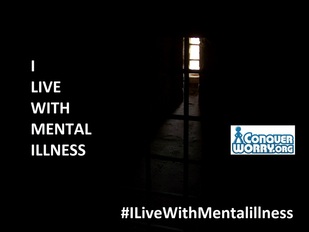 My story started when I was in high school. I was in year 10 and going along well. I was academic, sporty, involved in community activities and had a good group of friends. One girl joined our friendship group towards the end of this year. We opened up and let her in as she didn’t seem to have many friends of her own. All of a sudden the dynamic of this group changed once we started school the following year. This new girl to our group didn’t seem to like me and I was unsure as to why. She started making comments about me to other people and before I knew it my friendship group didn’t even seem to even acknowledge me anymore. I was made to feel isolated and excluded and I was confused as to why. What had I done wrong? I felt I had to try and make a new group of friends and quickly otherwise high school would have been a terribly lonely place. Having to try and make new friends in year 11 when friendship groups really seemed to be developed by this point was hard. I was upset with my friends for acting the way they did and listening to the mean comments being made about me. This girl continued to bully me throughout high school and gave me a tough time. I was just looking forward to finishing high school as I felt I’d be better suited to university life- being able to be independent without worrying about being bullied or ridiculed. Once I was at uni, life seemed great. I was studying in my dream course, living with my boyfriend and mental health issues weren’t even on the cards. Things took a turn once my boyfriend and I broke up halfway through my first year of uni. We were best friends, together for 3 1/2 years and did everything together. He was my rock. So when we were no longer together and I had to learn to do things on my own I felt lost. This is a feeling I wasn’t used to and I didn’t know how to cope. I started to feel down more often than not and couldn’t seem to stop myself from crying and experiencing negative emotions. I decided to be proactive and went to my GP to seek help. I told him how I was feeling and he referred me to a psychologist. She helped me to face these emotions and work through them. This was a really confronting experience as I generally push away negative emotions so I don’t have to deal with them. After this I felt better. The negative emotions were going away and more positive emotions seemed to be coming through. I continued to use the counselling services provided at uni to try and get my life back on track. I was making friends at uni and focusing on my studies. It was still really hard to completely readjust my life and start fresh. It was a real mental battle that I struggled with but eventually I started to feel on top of things again and enjoy life for myself. I had made new friends and was no longer worried about feeling alone. In 2013, I moved away from my home town near the city to a more rural location. The closeness and great community feel gave me a sense of belonging. I became involved with local sporting and community groups and landed myself a job at a wonderful and supportive organisation. I had made some really good friends and had a boyfriend too. I was learning to live away from home and be independent. However, what I didn’t realise was that I wasn’t actually being fully independent. I’d lived my life following the ways of other people, whether it be family, teachers or a boyfriend. I had never truly experience adult autonomy. So at the start of 2014 when my boyfriend and I broke up I began to spiral again. I was unable to cope with the negative emotions I was feeling. I felt lost and empty. Nothing in my life seemed to have meaning anymore. I felt that I had no direction. Soon after, I spoke to a work colleague about how I was feeling. I broke down in tears and she could see how distressed I was. She suggested trying mood stabilisers to help me get back on track. I decided to make an appointment with my GP to discuss this with her. She could also see my distress so agreed for me to try the medication. A few days later I started to feel the anxiety building up. I was shaking and crying uncontrollably. My heart was beating so fast and the pain I felt in my heart wouldn’t seem to go away. I rushed over to my friends’ house as I thought talking about my feelings may help me to get passed them. We were out for a walk when I broke down. Again, I was crying uncontrollably and couldn’t bare these feelings of distress. Having no control over the situation I was in made it hard for me to cope. I was asking ‘why me?, ‘what have I done?’. I couldn’t seem to make sense of this all in my head. I went back to the doctors shaking, crying and feeling helpless. She believed that the mood stabilisers had reacted with other medication I was on which made the side effects worse causing me to have extreme anxiety. I was admitted to hospital with severe anxiety and depression. I had the medication flushed from my system and nurses there to keep me calm. I was still in a daze, I wasn’t really sure what was going on. I sat there on the hospital bed, being poked and prodded, nurses surrounding me but everything was a blur. I felt alone, unable to move. I just sat there feeling numb and empty. This is it. I am having a breakdown. I have hit rock bottom. The next couple of days I spent in the hospital with my mental health being monitored. I had no appetite, no motivation, I felt nothing. I never once had suicidal thoughts but I felt so far down with no way of getting out. I couldn’t see the light at the tunnel and just felt like I had nothing to look forward to. My best friend had just gone overseas, my parents and other friends were also away on holidays and I was stuck feeling as though I had little support. Nothing seemed to mean anything to me anymore. Food had no taste, words had no meaning. I felt empty and alone. Whilst I was in hospital I was well supported. I had nurses checking on me and visits from a social worker and psychologist. A few days later I was discharged from hospital. I had follow up visits with my GP and the psychologist. I was determined to sort out my life again and get back to being the happy, motivated person that I know I was. I hated feeling so down and depressed. I wanted to be proactive in seeking help. I continued to see my GP who wrote up a mental health script for me which referred me to a social worker. This was great as it offered me 6 free sessions with a professional to work through my depression and anxiety. I have worked really hard to overcome my mental health issues and am learning to understand ways to manage my depression and anxiety. I have been seeking help and learning to cope and sit with negative emotions. I openly discuss how I am feeling with my friends and family. Everybody in their life will experience negative emotions at some point and it is important to understand that it is okay to have these feelings. It is about learning to deal with uncomfortable emotions rather than trying to run away from them. It is okay to talk to others about how you are feeling or to seek help. I want to encourage others to know that it is okay not to be okay and that you are not alone. Everybody should be able to talk about their feelings openly without being judged. Poor mental health is not a sign of weakness. It is a sign of strength for a person to be able to talk to somebody about how they are feeling or to admit they need help.  Lauren can be found on Twitter: @loza_1818. She has a Facebook Page dedicated to raising money and awareness of mental health issues and hopes to spread the message far and wide. She is planning to trek the Himalayas in order to raise awareness for Black Dog Institute and positive mental health. If you are interested at all please check it out! https://www.facebook.com/trektohappiness. 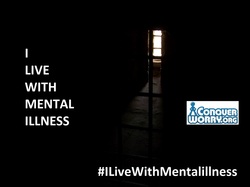 I began treatment with Zyprexa in January. I was diagnosed with having a “psychosis”. I was informed that I would need to stay on this medication for the rest of my life. As it turns out, Zyprexa is intended to treat people who are psychotic (schizophrenic, etc.) and not intended for long time treatment. The reason I had gone to see a doctor was because I had obsessive thoughts regarding a personal matter that was becoming distressing to the point that it was interfering with my daily life. I was seeing a psychologist at the time for bilateral atypical facial pain, depression, and anxiety. We began discussing treatment options and I was referred to a psychiatrist. It is clear to me now that I was misdiagnosed or at the very least given haphazard treatment and advice regarding my problems with ruminations and obsessive thinking. It is important to note that I used Zyprexa for obsessive thinking/ruminations before. At the age of 19 I was prescribed Zyprexa at an Outpatient Mental Health Clinic (run by a Private University) – the only care I could afford or had access to. Additionally, during brief periods of incarceration I used Zyprexa and other medications that were prescribed by “Jail Psychiatrists”. However, it is my conclusion that based on the mismanagement of my mental health (being passed on from Dr. to Dr. or clinic to clinic) and lack of “collective care” (within the Mental Health System) that led to my medication being mismanaged. May 2008 I finished a Bachelor of Science degree and resigned from a 4 year tenure in a high level corporate environment (Property Management). I had attended university full time whilst juggling a full time high level executive position for close to 5 years. I don’t know anyone that’s psychotic that manages 65 people, is on call 24/7, and attends university full time. But I was in so much (mental) anguish because of my ruminations that I “bought” what the Doctor was “selling”. Given that I had used the drug before (and it worked) it was an obvious choice for the Doctor (an easy decision for him to justify). May/June 2008 (After approximately 5 months of using zyprexa) I met with my psychiatrist and informed him that I had been experiencing severe side effects with zyprexa (weight gain, erectile dysfunction, elevated prolactin levels, and more). He insisted that I just stop the medication completely; even though I questioned these methods (psychotropic medications should always be titrated). I did not sleep for four days once I discontinued zyprexa. I contacted my physician and he wanted to put me on sleeping pills. I declined. I asked if we should try titration of the Zyprexa and he agreed. However, even after titration of the drug (as 4 days had already passed without the medication) I had trouble sleeping. Therefore, I was prescribed Ambien and then Lunesta to sleep. Finally, after lunesta was not helping (and my physician was asking me to take two at night) I called and spoke with him on a Saturday afternoon. I had been suffering from sleep deprivation for 2 weeks (only sleeping for 2-4 hours a night). I was extremely depressed, and suffering from withdrawal symptoms from zyprexa. He asked that I stop using lunesta (again, with no titration of the drug) and that eventually my body would just “give up” and I would fall asleep. The only other option that he offered was to call in a “cocktail” of drugs that would definitely put me to sleep. I told him that this was not an option for me. I was always a healthy, fit, outgoing and personable young man who now could not sleep, suffered from severe depression (withdrawal symptoms) and sleep deprivation. I told him enough was enough and I wanted to see him to get to the bottom of this. I wasn’t getting any better, I was getting sicker. Therefore, we scheduled an appointment for the coming Monday to discuss my concerns. June 15 2008 I took my last lunesta and had a night of no sleep. I woke up extremely depressed and broke down into tears. I contacted my family who live in ——————- (It is important to note that my family and I have a “strained” relationship, so the fact that I was calling them was a cause for concern). They said they would visit me so they could accompany me to see this “Dr.” to ask what was going on. I still could not sleep, so I decided to watch the European cup soccer tournament. I made a lethal mistake by drinking approximately five beers watching a soccer match. Please be aware it was about 14 hrs since having my last Lunesta. That was the only medication I was on after titration of zyprexa, which had been discontinued about 2 days earlier. I idiotically thought perhaps a few beers would help me sleep. Immediately during the ingestion of approximately five beers, I felt a “numbing” sensation. I IMMEDIATELY experienced the following symptoms – 1) Felt as if I had “no emotions” 2) Could not “feel anything” 2) Inattention – could see what was on TV but could not “absorb” any information 3) Could not read (lasted 3 weeks) 3) Memory loss / was extremely disoriented / Confused / 4) Visual processing problems (could not focus on moving objects / saw “trails”) 5) Visual perception problems / Felt like I was in a “trance” or was constantly “staring” 6) Had no sense of time 7) Had no sense of “self” / no “soul 8) Mind feels “blank” / 9) Had bad perception of the floor, ceiling, height and slope I called the psychiatrist who prescribed the medication and advised that I had these problems after I drank; I was told to “SLEEP IT OFF” as the only harm from drinking a day or so later from taking a lunesta would make me tired and he would see me the following day. When I saw this psychiatrist the following day, he immediately informed me that my “psychosis” had returned and asked that I begin taking anti-psychotics (Geodon). However, my family and I knew that I was not psychotic, nor were the symptoms I was experiencing normal. They were likely caused as a result of the withdrawal symptoms of these drugs and the combination of alcohol and no sleep. These HORRIFIC DISABLING symptoms lasted for 6-8 months until I was finally able to be diagnosed with Chronic Depersonalization Disorder. During this time (due to the severity of my Depersonalization) I developed severe depression, agoraphobia, I was afraid of the dark, my symptoms were so severe that I was suspected of suffering a traumatic brain injury! Since this took place (on June 15), I have seen a number of doctors. Some of these doctors knew me prior to this incident so they could see that something had changed. Some of my symptoms have come and gone but one remains constant, it is a feeling of detachment, dissociation, lack of memory, focus, sense of time, and reality. I also must note that only thru paying almost $400 a month to continue my Insurance from my previous employer via “COBRA” was I able to obtain the type of care I received. Had I not had the money to afford these visits, see various doctors, or have these tests covered, I would likely have ended up in an insane asylum. The following is a brief synopsis of the appointments and tests I had (and findings) since June 15 2008 – – 62+ appointments with specialists in neurology, psychiatry, psychology, etc. – Standard and 24 hour EEG – both normal – Brain and C-Spine MRI – both normal – Brain SPECT Scan – normal – Neurological Labs & tests – normal - Neuropsychological testing (full 15 units) – ABNORMAL (see below) – Meetings with my neurologist and (NEW) psychiatrist from the ————- came to the following conclusions – 1) I should have not been given zyprexa, although this medication can be used at the discretion of the physician (even for severe cases of OCD or “off label use”) it should not be a “first choice” for obsessive thoughts. I AM NOT psychotic and this medication is harmful. They also advised that this medication (and others) can NEVER be stopped without a gradual reduction (titration of the drug). In addition, I was misdiagnosed (told I had a psychosis – ??) 2) My symptoms were initially consistent with a brain injury (that is how severe they were); therefore, the initial diagnosis made by my neurologist was “encephalopathy of unclear etiology” 3) Neuropsychological testing concluded in November of 2008 (5 months after the incident). The Dr. met with my mother and I and advised of the following – – I was diagnosed with “Chronic Depersonalization and Derealization” as a result of the above fore mentioned process. – The combination of medication in my body (the antipsychotic and hypnotic), the no sleep, and alcohol caused this type of “experience”. – Although not included in his report, the Dr. said to both my mother and I that the “anti psychotic (zyprexa) and hypnotic (lunesta) CONTRIBUTED to me having this condition” His exact words were “you had an anti psychotic you did not need” – The exact “criteria” and/or ending diagnosis with Neuro-psychological testing was the following – 1) Axis 1 300.4 Dysthmic Disorder: Early Onset 300.02 General Anxiety Disorder 300.06 Depersonalization Disorder: CHRONIC 2) Axis 2 301.9 Personality Disorder NOS to include Obsessive Compulsive and Dependent Features 3) Axis 3 Post Concussive Syndrome x2; Atypical Facial pain / Subclinical hyperthyroidism / Incidental Right Intraventricular Chorold Plexus Cyst Conditions prior to Chronic Depersonalization – Bilateral Atypical facial pain, sub clinical hyperthyroidism, a right intraventricular chorold plexus cyst, mild (verified via previous testing) obsessive thinking and general anxiety. There is much debate and speculation whether Depersonalization is a SYMPTOM secondary to another severe psychiatric problem. However, in my case (as seen above) it has been diagnosed by itself – not secondary to any other psychiatric illness – therefore being chronic and being obtained through the process described above. – My tests also showed SEVERE deficits in my short term and long-term memory due to the severity of my chronic depersonalization and derealization disorder – visual and auditory tasks are impaired. Through the stress, anxiety, tension, and suffering caused by this process (and medication) I developed an involuntary movement condition. Three neurologists classify it as being “tics” or a “functional movement disorder”, but say, it is likely caused by an imbalance in the brain (caused by this drug reaction on June 15, 2008) my head involuntary “twitches” and “clicks” to the left (on occasion). Some Final Key Points I’d like to make – 1) I was told (in the presence of my mother) that these drugs (zyprexa and/or lunesta) contributed to my condition (Depersonalization disorder & deficits in long / short-term memory). In addition, I should not have been given zyprexa, as it is not indicated for my condition by the Dr. that conducted neuro psychological testing 2) I was told that these drugs should NEVER be stopped abruptly as they can cause severe withdrawal “effects” (as in my case) by the Dr. that conducted neuro-psychological testing, my new psychiatrist, my neurologist, and the psychologist I was seeing at the time 3) Even after June 15, the “psychiatrist” that I feel “caused” this process told me to abruptly stop an antidepressant that I was using for sleep. His answering service gave me ridiculous instructions such as – “do not listen to the pharmacist” and/or “do not even read the drug instructions, precautions, or warnings” regarding the medication I was given for sleep”. Given my mental state at the time I would then ask my current physicians at —–, who urged that I not follow this doctors advice. (Neurologist) 4) The psychologist I was seeing at the time (both prior to usage of this medication and after the incident occurred) would state things to me like “I think the Zyprexa did something to your brain” and “the whole thing is weird” (She is a PhD). 6) My new Primary Care Physician (after I explained to him my “story”) advised that Zyprexa could have made chemical changes to my brain, but if so, there is NO way to find out. He continued to mention that it is a horrible drug & is very sympathetic with my case. 7) I have since made progress but will likely be on medication for life, since June 15 I have had over 63 appointments with different specialists directly related to this chronic condition (not including my COBRA premium monthly payment of almost $400). 8) What is even sadder, is the fact that I was given the medication zyprexa once before at the age of 18-19. This was given to me at Nova Southeastern Universities Mental Health Clinic. Due to a lack of health insurance I was forced to seek help for my obsessive thoughts (OCD) at this clinic. This clinic allows you to see graduate STUDENTS for counseling and an overall evaluation. Based on that evaluation a Dr. would see you and prescribe medication (give you free samples). Can one consider that I was even given the wrong medication at this location too? Because I was evaluated by a graduate student as part of her training (who was only 2 years older than me, therefore it was very difficult to be quite personal with my problems) and there was even more of likelihood then that Eli Lilly was illegally marketing this product? This proves the disparity in our Mental Health system and more so our Health care system – had I had insurance I could have likely been exposed to better care. It is quite possible that if i had access to seeing a good psychotherapist in combination with a psychiatrist that an anti psychotic (or perhaps any medication) would NOT have been used. But in cases where people have little to no access to care (even doctors will admit to this) the “quickest fix” is used. Mental Illness is so abundant in the United States yet it is a problem that is consistently underfunded and therefore our prisons and Emergency rooms are responsible for taking care of mentally ill patients when they have little to no experience in dealing with the mentally ill! 9) These drugs have been sued for consistently causing harm to individuals (zyprexa has been sued for side effects such as Tardive Dyskensia, diabetes, and being prescribed for off label purposes. They settled cases in 2003 and 2005. However, since most of these are for people who have developed diabetes or tardive dyskensia, the attorneys I have spoken with do not feel they cannot pursue my case (I still feel that Zyprexa had some effect in this process and the Psychiatrist I was seeing at the time was negligent) as they feel that they could not prove that my injuries are “significant enough”. If Eli Lilly is still under investigation for soliciting physicians in South Florida for prescribing Zyprexa for “off-label” purposes, “ghost-writing”, and other non-ethical techniques (which are not yet deemed “illegal”), is it possible that my physician prescribed this medication because he was being “compensated” to do so? I sent inquiries to 11 different medical malpractice attorneys and/or attorneys that specialize in drug litigation. I only had the “privilege” to speak (mostly via phone) with 4-5 (Records of all my correspondence with attorneys I have spoken with have been recorded and kept in a separate document. Therefore, I began mailing that document to different drug tort attorneys, advocacy groups, and state and government officials. The results of these “mail outs” can be found in my “Mail outs and Correspondence link”. Most state that a medical malpractice suit cannot be claimed despite the amount of negligence by my psychiatrist at the time. However, the attorneys I have spoken with state that a suit against the drug manufacturer is my “best option” (given that the drug zyprexa has been sued on so many occasions). However, each one goes on to say that, my injury does not seem “significant enough.” Therefore, I continue to be referred to different attorneys, ultimately leading to no feedback or no returned calls. I wonder what “significant enough” really means? If you wake up one morning, and cannot recognize yourself in the mirror, are not sure if your dreams or memories are real, suffer from memory problems, feel like you are in a constant state of panic, derealization, or a “dream like state”, take three different medications a day (8 pills), and because of this and other factors sleep up to 14 hours a day, I would consider this “significant”. Nonetheless I was able to find a stable medication regimen that keeps my condition manageable which is the most important thing. The three medications I currently take are – Luvox 150mg, Klonopin 2.5mg, and lamictal 200mg. The University of London has a depersonalization research institute in which they recommend an antidepressant (in my case Luvox), klonopin, and lamictal to help treat depersonalization (reason for the combination of medication I take). Chris Barrett  My name is Chris, a 33 Y/O male who suffers from Chronic Depersonalization (a very rare and misunderstood dissociative condition). The purpose of my BLOG is to tell my story, help fellow sufferers, raise awareness, meet others, post blogs/articles on related topics, and have constructive debate and discussion. Please feel free to visit my blog at Mydepersonalizationexperience.com 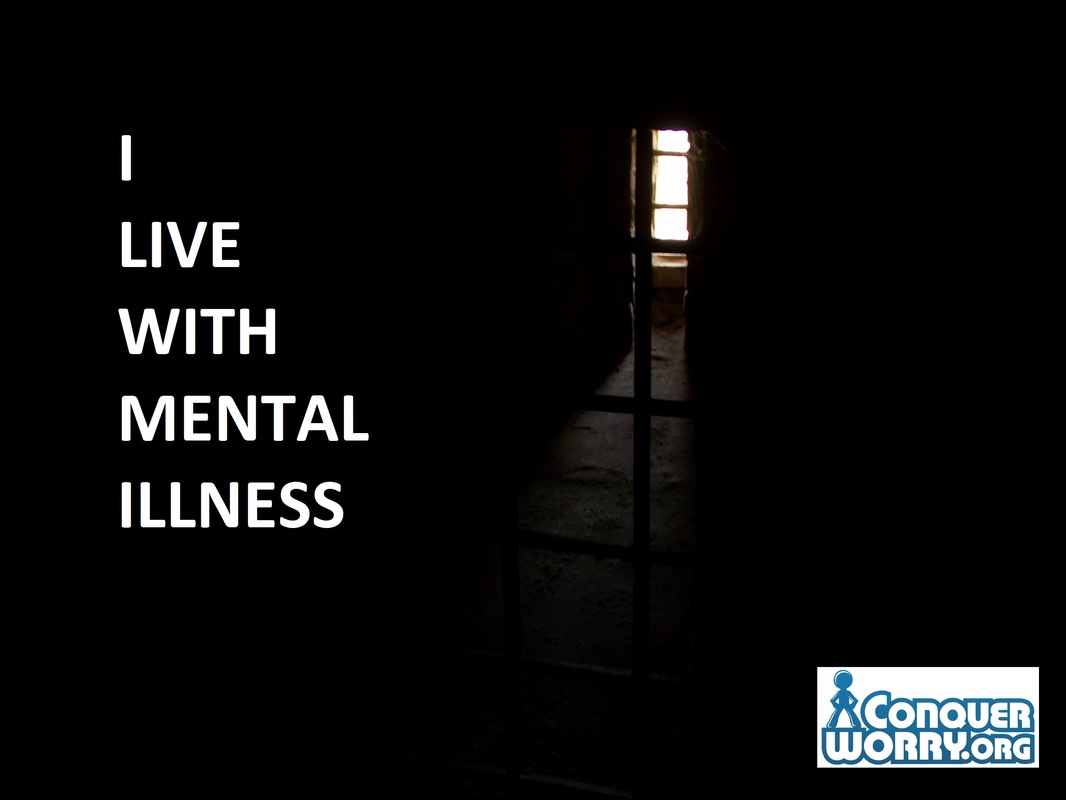 I recently celebrated my 34th birthday, and with that I did the regular coming to terms with the reality that I’m not as young as my mind likes to convince myself that I am. Having an end of January birthday also gives you a ‘do-over’ for all my failed New Years resolutions…and this year was no different. So here they are: (1) Eat Healthy/Get in Shape/Feel Good (so simple, yet so required to be made…Every. Single. Year.) (2) Do more with family (and friends) My wife got me camping gear for Christmas, so I’m already looking forward to putting that to use this summer. (3) Build stuff!! I know this is very broad, and leaves lots of room for variety…but I want to build stuff. Accomplish things. Let my creativity unfold. (4) To write…which is what brings me to starting this blog today. I find that birthdays also bring on a time of reflection…looking back on the year that was. Analyzing, evaluating, and critiquing. And let me tell you, this year was something else!! From start to finish, the best way that I can describe it is that 33 was that unexpected punch in the chest that completely knocks the wind right out of you. It started out slow, built up into an absolute whirlwind in the middle, and in many ways both extreme hurt and numbness to end things off. This last year was one for the books. I wish I could say it was forgettable…but it’s not. It’s all too memorable. I told my wife, Sherry, that I wanted to start a blog. I’ve wanted to start writing. She’s wanted me to write. It seemed like perfect timing to get on that. Seemed, being the key word. “What do you want to blog about?” she asked. Especially after this last year I had no doubt in my mind what I wanted to share. “My Life…a window into my life. A little bit of what I go through, how I see things, and what it’s like to live with someone like me.” For those of you that know Sherry, and to those of you that don’t, my wife is an extremely private person. She hates attention, avoids surprises, and is completely content just blending in. I threw a “30 and Fabulous” surprise party for Sherry, and my biggest fear was that she was going to HATE the surprise. To soften the blow, I told her there was going to be a party, when that party was going to be, and what to wear. To her I don’t know what would have been worse…the surprise, or the anticipation of the unknown. Bottom line is it was a great party. She’s now 32, and still absolutely fabulous!! But the thought of putting our private life on display in any way struck literal fear in my wife. At first she very much resisted, but over time that resistance lessoned, and here I am today…writing my first blog entry with the support of the most beautiful ‘proof-reader’ I could ask for. I don’t know what my expectations are with this. I don’t even know who or how many people will even read it. But what I do know is that I want it to be real…a passage into my life. To make myself vulnerable, and break down walls I have spent years building up. It’s putting my life on display in hopes that I can maybe give a little encouragement to ‘people like me’. And to shed some light for those who have to live with, or simply don’t understand what makes us tick. Why we are the way we are, think the way we think…my life, my reality, and my future. My name is David Stone, and I live with Mental Illness. There, I said it. And with hearing those words, most are struck with awkward discomfort. Lost on how to respond. How to react. And most importantly…how to change the subject, close that door, and put a lid on that box. No one wants to know or hear anything about a grown man who’s ‘off his rocker’. That’s a book that’s best left closed on the top shelf…out of reach. Out of sight. Out of mind. There’s a stigma that comes with mental illness, and my opinion is that stigma is rooted deep in misunderstanding, misinformation, and in many cases complete ignorance. That’s what my approach is hoping to influence…I want you to get to know me. My challenges, my struggles. Accomplishments and failures. A taste of life both as a person living with mental illness, and those having to go through life with that person. I don’t intend to put myself or my family on display. I’m not looking for accolades or sympathy. Not to sound cliché, I hope to in some way be a voice to those who read this… Family. Friends. And you who somehow stumble across this. To shed some light on what it’s like living under the label of ‘mental health’, and in some way… #stopthestigma(<cliche overload) We all know someone who suffers from some form of mental illness. Wether it be anxiety, depression, bi-polar, schizophrenia, or any others. We’ve seen the impacts it has on their lives, and the lives of those close to them. It’s difficult, it’s challenging, and in many ways it’s overwhelming. But…it doesn’t have to be defeating. Life is most definitely different, but I’m slowly learning that that doesn’t mean it has to be worse. I’ve struggled with anxiety and depression for as long as I can remember. I never once thought of it as an illness, but just the way I was. It came and it went. Many days were better than others, and I grew accustomed to it. Not knowing any differently, it all just seemed normal. Looking back, the area that had the biggest effect on my life, and still continues to this day, is in the area of trust. I’m not a completely untrusting person…not even close. But to trust someone to the point of making myself vulnerable to them is nearly non-existent. I’ve had many friends over the years, but I’ve only allowed a few to get close. I’ve never been one to have ‘best friends’, to have people to confide in…or people to confide in me. Closeness and intimacy scares me to the core. This is a fear I fight daily, and I expect to fight for as long as I live. It’s just one of the realities that is my life. This past spring/summer there were a series of events that ultimately led to my diagnosis as having ‘Narcissistic Borderline Personality Disorder’, or BPD. My depression and anxiety were spiking more than they ever had before, and I was becoming increasingly erratic and irritable. Sherry finally convinced me to see a doctor about antidepressants and mood stabilizers. This was just the beginning of what is proving to be the most challenging phase of my life. I got hit very hard by the Robyn Williams suicide. That really carved into me the reality that this depression/anxiety is not something that’s just going to go away. I began to self-harm, which until this point is something I was able to keep hidden and under control. The self-harm led to a trip to RUH emergency, which resulted in getting admitted to the Dube Centre for Mental Health. It was during my stay here that I was diagnosed with having BPD. My life since then has been, and continues to be a time of major adjustment, both for myself and my family. I work only 80% now because of my new reality, which is counselling once or twice a week, as well as regular appointments with my psychiatrist. I guess to end off this first entry I’d like to leave you with who I am: Yes, I’m BPD. Yes, I’m suicidal (yet so far not successful. <-(captain obvious)) Yes, I’m medicated. Yes, I have a life filled with therapy and psychiatrists. Yes, I self harm…as I write this I’m looking at my most recent stitches on my arm. But that’s not all that I am. I am a caring father, a loving husband, and a considerate friend. And also very importantly, I’m working my ass off to learn how to take control back of my life. I know BPD will never go away, but I also know that through hard work I can become in control OF it, and not suffer being controlled BY it. Here is a quote that I love. I share it quite regularly with Sherry, as I feel it describes quite accurately the person she has been strong enough to live with for the last 15 years of our lives. “I’m not an easy person to be with. I know that. I probably won’t even try to make it easy for you. I’ll be real difficult at times. It may seem, at times, I don’t want you, and I don’t like you, but I do. I’ll be a challenge, because I’m not the type of person who people walk all over. I’m not the person who puts up with bullshit. I’m not the person who will give you sympathy comments. When I say something, I mean it. If people are assholes to me, I cut them out of my life. I’m annoying, I’m hilarious, and I’m the worlds biggest jerk. I’ll make you want to scream and punch walls; I’ll ruin your day and then save it at the very last minute. I’ll drive you crazy and, sometimes, you’ll hate my guts. But even though all that’s going to happen, and I swear it will, I have an amazing side to me. I do. I have a giant heart. I’ll always be there when you need me. Even if my life is impossibly knotted, I’ll try and untangle yours by listening and loving. I won’t sop caring about you, not even if you push me away. You’re different from everyone else, and I like that. It’s refreshing to find someone different in the world because way too many people are all the same.” Thank you for taking the time to read this blog. Feel free to comment, and please…if you know anyone who might be interested in or be of benefit to what I have to say, please pass this on. Until next time, Thanks again. Dave  Connect With Dave: Blog - hadtoomuchtodreamlastnight.wordpress.com Facebook - www.facebook.com/hadtoomuchtodreamlastnight Twitter - https://twitter.com/InkedDadBPD Tumblr - https://www.tumblr.com/blog/-hadtoomuchtodreamlastnight Instagram - http://instagram.com/dave__stone/
 Worry is a habit that we usually pick up from other people. When you were a young child you probably never worried. But then you learned about something called time, you probably learnt negative ideas about the world, and you probably learnt that you are responsible for your life. All this together, with the additional belief that worrying will help with all of it, creates a troubled human being. Rather than needing to fix or correct any worry-patterns you may have, it may be useful to just see if it helps you. Intellectually it is easy to say “I know worrying does not help”, but is it possible to view the movement of worry as it arises, and directly see if it creates any positive action? Someone may be lying in bed for example. They may be worrying about a financial situation. Round and round the worry goes, like a song stuck on repeat. They feel lost in worry. It is not comfortable, and so they may try to talk themselves out of it. Thoughts like “I should just stop worrying", “I have enough money for now”, “there is no point worrying” can all arise, and rather than disabling worry, just create a greater conflict with the mind. If however, whilst the worrying was happening, they simply no longer argued with it, what would happen? Worry gives you a problem and then attempts to solve it for you. What if you completely gave up trying to stop worrying, and fully let yourself worry? Worry lives on resistance, if you give up resistance to it, it runs out of food. You may also notice, that as worry rises, contorts and speaks, it is not actually solving your problem. The person worrying about money may see that as they allow the worry to flow, the worry leads in no way to creating more money. If anything, it just uses up energy and allows no space for any new or fresh ideas to come through. So nothing needs to be done. Let it play out, call its bluff, smile at it even as it attempts to convince you that it is a useful tool for life. By itself, it will lose its grip. Here is a recent quote on my Facebook page that may help: “If you find yourself ever feeling negative or worrying about something, it can help to simply see if it helps. Does worrying about money help you get more money? Does worrying about tomorrow make tomorrow go better? Does worrying about your job help you get a better one? Does worrying about what you will say make you a more effective speaker? Worry can live in us when we unknowingly believe that it is serving us. If it is seen in itself to be a futile movement of energy, then it will not likely live on for long. If, however, you believe it helps you in some way, then it will probably feel stuck with you.” You may find that as worry comes and goes, you are the untouched space in which it moves. Adam Oakley  Adam Oakley is author of the website www.InnerPeaceNow.com, a free resource for uncovering the peace within. Connect with Adam: Blog: www.innerpeacenow.com/inner-peace-blog Facebook: www.facebook.com/InnerPeaceNow Twitter: www.twitter.com/innerpeacenow1 |
Build Your Action Based Stress Reduction System
Popular PodcastsOlympian Suzy Favor Hamilton - From Fame to Prostitution to Advocacy
Hall of Fame Basketball Star Chamique Holdsclaw on Mental Resilience Diana Nightingale on her husband Earl Nightingale's Principles for Mental Health Success JoAnn Buttaro on Date Rape & PTSD Survival Story: Its Never Too Late Gabe Howard on BiPolar Advocacy Phil Fulmer on Teen Suicide Prison, Bipolar and Mania with Andy Behrman Columbia Univeristy's Dr. Rynn on OCD Archives
March 2018
Categories
All
|

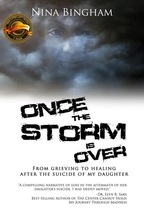




 RSS Feed
RSS Feed





